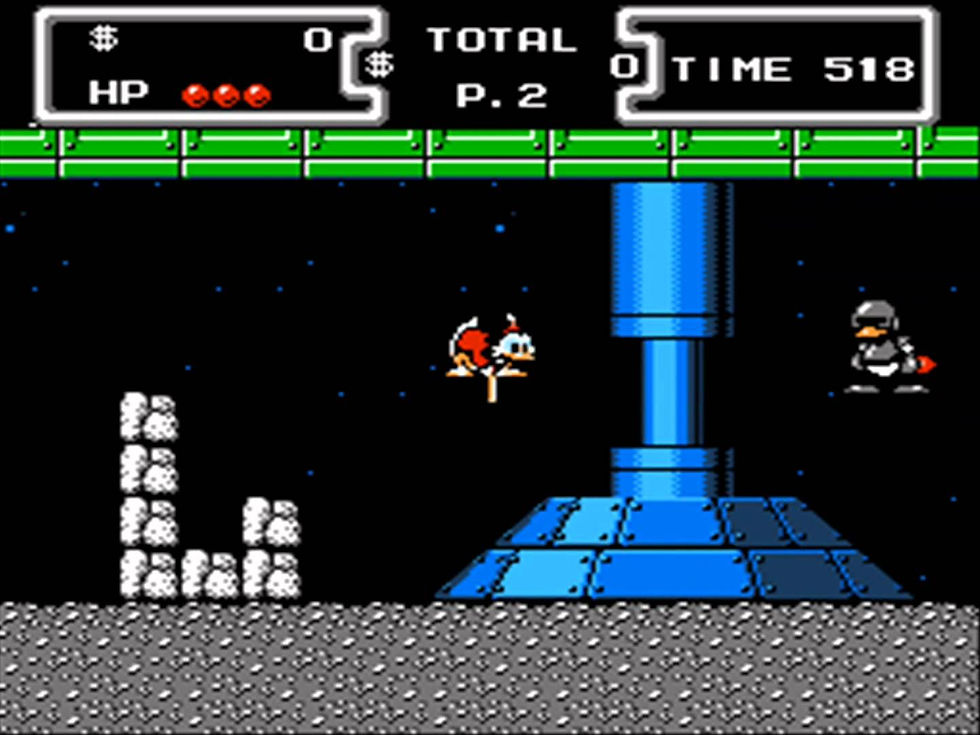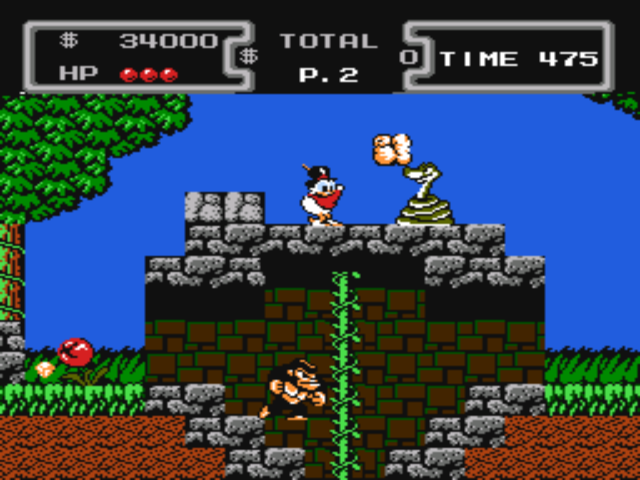|Game of the Day| Duck Tales | 11.29.2016
- Zak Eaton
- Nov 29, 2016
- 3 min read

DuckTales an action platformer video game developed and published by Capcom and based on the Disney animated TV series of the same name. It was first released in North America for the Nintendo Entertainment System in 1989 and was later ported to the Game Boy in 1990. The story involves Scrooge McDuck traveling around the globe collecting treasure and outwitting his rival Flintheart Glomgold to become the world's richest duck.
Produced by key personnel from the Mega Man series, DuckTales would go on to sell over a million copies worldwide on each system, becoming Capcom's best-selling title for both platforms. The game was praised for its tight control, unique and non-linear gameplay and bright presentation, and is often regarded as one of the best titles for the NES, appearing on numerous "Best of" lists.
DuckTales was followed by a sequel, DuckTales 2, in 1993. A Remastered version of DuckTales developed by WayForward Technologies, featuring high resolution graphics and most of the original voice cast from the show, was released in 2013 for PC, Xbox 360, PlayStation 3, and Wii U.

The game sees players in the role of Scrooge McDuck as he travels around the world and outer space in search of five treasures to further increase his fortune. Scrooge is able to attack enemies and get around using his cane. On the ground, Scrooge can swing his cane to attack enemies and break open or throw certain objects. While jumping, Scrooge can bounce on his cane like a pogo stick to attack enemies from above. This also allows him to reach higher areas, as well as bounce across hazardous areas that would hurt him on foot. Along the way, Scrooge can find various diamonds, found in treasure chests or appearing in certain areas, to increase his fortune and ice cream that can restore his health. Scrooge will also encounter various characters from the serieswho have various roles, such as providing hints, offering up items, opening up new areas, or attempting to stop Scrooge's progress.
Five levels are available in DuckTales: African Mines, The Amazon, The Himalayas, Transylvania, and The Moon. The player can visit any of the destinations to pursue the treasures in any order. However, The African Mines and Transylvania must be revisited to acquire certain essential items. There are also two secret treasures hidden within some of the destinations. Each destination's treasure is protected by a boss that Scrooge must defeat to retrieve. When all five main treasures are collected, the player returns to Transylvania for a final boss fight against Dracula Duck. After defeating him, the player must contend with Flintheart Glomgoldand Magica DeSpell for the final treasure. Upon completing the game, the player can receive one of three endings based on his performance: a regular ending for simply clearing the game, a great ending for clearing the game with both hidden treasures and at least $10,000,000, and a bad ending for clearing the game with $0.

Development
Although Capcom had previously worked with Disney by publishing the Hudson-produced Mickey Mousecapade in North America in 1988, DuckTales became the first licensed game from the company that they actually developed,[1] and shared many key personnel with the original Mega Man series including producer Tokuro Fujiwara, character designer Keiji Inafune, and sound programmer Yoshihiro Sakaguchi.

Revisions to the game included the removal of crosses from the coffins in the Transylvania stage, replacing them with the letters "RIP", replacing hamburgers as power-ups with ice cream, and the omission of an option for Scrooge to lose all his money, which was deemed too "un-Scrooge-like."[2] A leaked prototype cartridge from a private collector reveals several differences between the original unfinished version and the final release, such as different level names, unused music for the Transylvania stage, slower tempo on the music for the Moon stage, unused or altered text, and the character GizmoDuck going by his Japanese name "RoboDuck".[1][3] Despite the changes, images of the unfinished beta version could be seen in the 1990 books Consumer Guide: Hot Tips for the Coolest Nintendo Games and the NES Game Atlas by Nintendo.
DuckTales was later ported to the Game Boy in late 1990. This version features the same gameplay, music and levels of the original console release, though the layout of each level was changed to accommodate the handheld's lower resolution screen.[1]











Comments